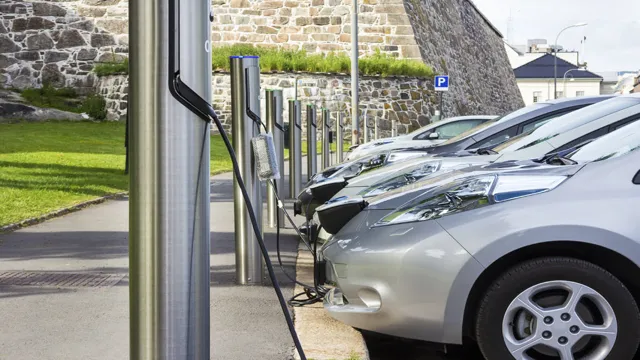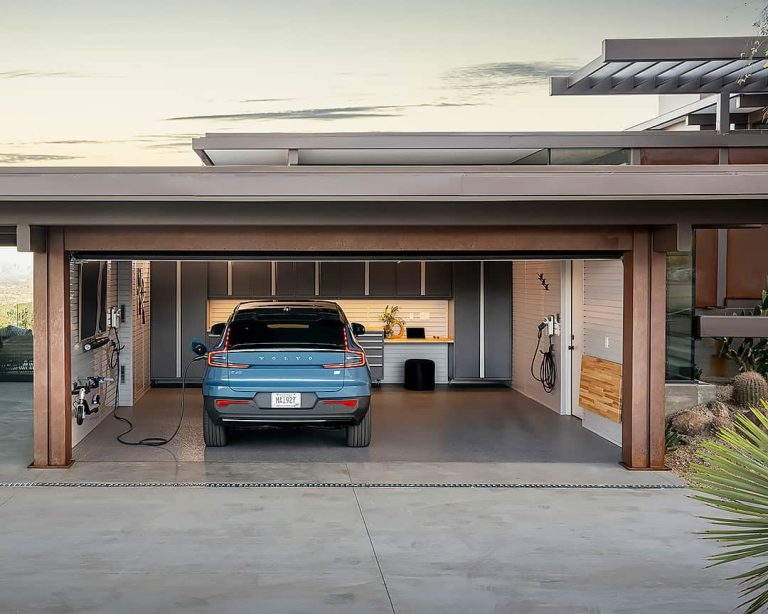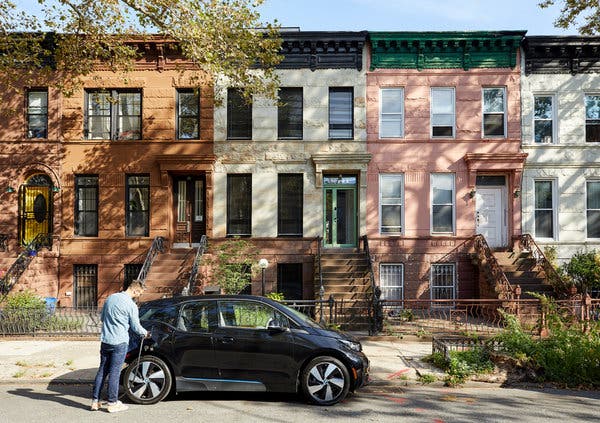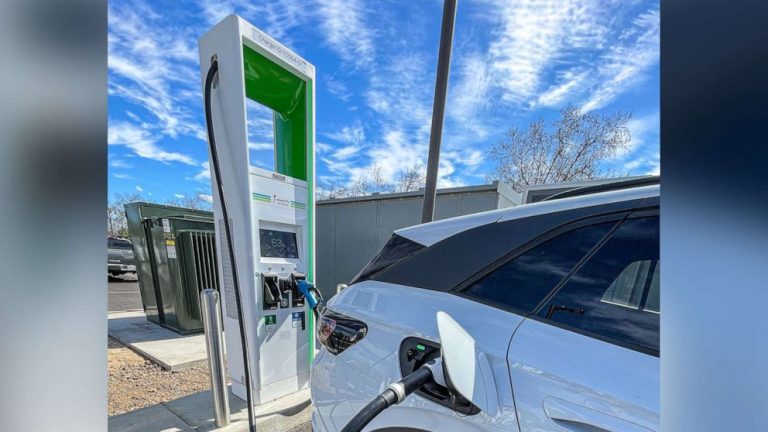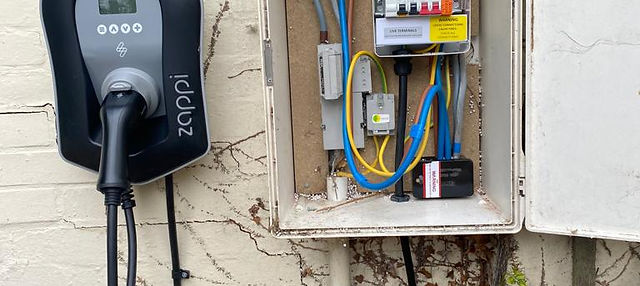Revolutionizing Transportation: Exploring Norway’s Electric Car Charging Infrastructure
As we move toward a greener future, there’s no doubt that electric cars are a crucial piece of the puzzle. But with that comes the need for a robust charging infrastructure, and Norway seems to be leading the way. This Scandinavian country boasts one of the most extensive electric car charging networks in the world, making it an ideal destination for EV owners.
But what exactly does Norway’s electric car charging infrastructure look like, and how did they manage to build such an impressive network in such a short time? Let’s dive in.
Introduction
Norway is leading the way in electric car adoption with its extensive charging infrastructure. The country has been promoting electric vehicles (EVs) for years, and it shows in its public charging network. There are over 10,000 charging points in Norway, with more than 2,500 fast chargers capable of charging an EV in just 20-30 minutes.
This means that EV owners can easily find a place to charge their car, whether they are traveling long distances or just running errands in the city. The Norwegian government has also implemented policies that incentivize the adoption of EVs, such as taxes and toll exemptions, free parking, and access to bus lanes. These measures have made Norway the country with the highest EV ownership per capita in the world.
As the world moves towards sustainable transportation, Norway serves as a model for other nations to follow in building a reliable and efficient charging infrastructure for electric cars.
The Success of Electric Cars in Norway
Electric cars have been making waves all around the world, but nowhere more so than in Norway. The Scandinavian nation has been leading the way in terms of electric vehicle adoption, with roughly 60% of new cars sold in 2020 being electric or hybrid. This is a remarkable achievement, especially when you consider that just a decade ago, only around 1% of cars on Norwegian roads were electric.
The success of electric cars in Norway can be attributed to a combination of factors, including generous government incentives, a favorable charging infrastructure, and a strong commitment to tackling climate change. As a result, Norway has become a shining example of how to transition to sustainable transportation, and its success is sure to inspire other countries to follow suit.
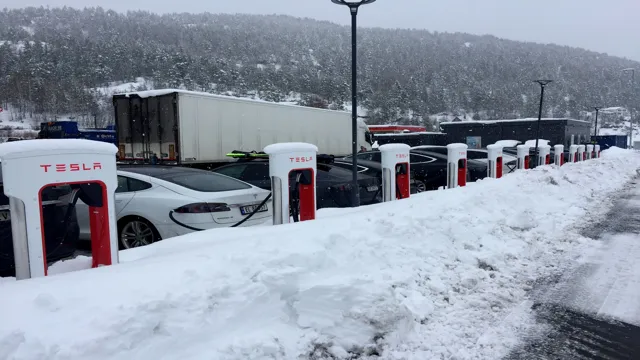
The Importance of Charging Infrastructure
The importance of charging infrastructure cannot be overstated in today’s world. With the rise in popularity of electric vehicles, having a reliable network of charging stations is crucial. After all, no one wants to be stranded with a dead battery! Whether you’re commuting to work, running errands, or embarking on a road trip, access to charging infrastructure gives EV drivers the confidence they need to go the distance.
It’s like having a gas station on every corner, except instead of emitting harmful fumes into the atmosphere, EVs rely on clean, renewable energy. To put it simply, charging infrastructure is the backbone of the EV revolution, and without it, the transition to a more sustainable transportation system would be impossible.
Government Support
Norway is a prime example of government support for electric car adoption. The country has invested heavily in charging infrastructure, with over 11,000 public charging stations available. This has contributed to Norway having the highest EV adoption rate in the world, with electric cars accounting for over 50% of new car sales in 2020.
The Norwegian government has also implemented incentives such as tax breaks, toll exemptions, and free parking to further encourage people to switch to EVs. Additionally, Norway’s wealth from oil reserves has allowed them to subsidize EV purchases, making electric cars more affordable for citizens. Overall, Norway’s approach to electric car infrastructure and incentives can serve as a model for other countries looking to transition to a more sustainable transportation system.
Financial Incentives for Electric Cars
Electric cars are becoming more and more popular these days. But while they offer numerous benefits for the environment, they can still be quite expensive. Luckily, many governments around the world are providing financial incentives for people to buy electric cars.
These incentives can come in many forms, such as tax credits, rebates, or even cash rewards. In some cases, governments might even offer free charging stations or special parking for electric cars. These incentives can make electric cars a much more attractive option for people who are on the fence about buying one.
And, of course, the more people who switch to electric cars, the better it is for the environment. One of the biggest reasons why governments are offering financial incentives for electric cars is to reduce carbon emissions. Electric cars produce far fewer emissions than traditional gasoline-powered cars, so they are seen as an important part of the fight against climate change.
By encouraging people to switch to electric cars, governments hope to reduce the amount of greenhouse gases being released into the atmosphere. But there are also other benefits to driving an electric car, such as lower fuel costs and a quieter ride. All of these factors make electric cars an attractive alternative to traditional cars, and the financial incentives being offered by governments around the world are making them even more accessible to a wider range of people.
Mandating Charging Stations in New Buildings
Mandating charging stations in new buildings is a great move towards a cleaner and more sustainable future. The government’s support in this initiative is crucial, as it not only encourages developers to incorporate EV charging stations in their designs, but it also sets a precedent for future constructions. By mandating charging stations, the government is taking a proactive role in promoting the use of electric vehicles, providing convenience for EV owners, and further reducing carbon emissions.
This not only benefits the environment but also helps to save money, time, and energy in the long run. It’s like planting a tree, at first, it may not seem like much, but over time, it will grow into something much more substantial. With the rise in popularity of electric vehicles, it only makes sense that new buildings be equipped to handle this electric future.
The government’s continued support in mandating EV charging stations is a step in the right direction for our planet’s sustainability.
Infrastructure Development
Norway has long been on the forefront of electric car technology and infrastructure development. The country boasts an extensive network of electric vehicle charging stations, which is vital to support the growing electric vehicle market. Thanks to incentives such as free tolls, HOV lane access and reduced taxes, Norway has one of the highest electric car adoption rates in the world.
Furthermore, the Norwegian government has invested heavily in expanding the country’s charging infrastructure, with the goal of having one charging station for every 10 electric vehicles on the road. This investment has driven private companies to build even more charging stations, making it easier for electric car drivers to travel long distances without range anxiety. All these efforts have made Norway a global leader in electric car transportation and a model for other countries looking to develop their own EV infrastructure.
Current State of Charging Stations in Norway
Norway’s efforts towards the development of electric vehicles and clean energy have placed the country at the forefront of sustainable public transportation. As a result, Norway has over 11,000 publicly accessible charging stations as of 2021, making charging an EV convenient and easy, even in rural areas. In fact, charging infrastructure has become an integral part of Norway’s transportation systems, with the government incentivizing the installation of charging points in public spaces, shopping centers, and gas stations.
This has led to a robust charging network, even in remote regions where the availability of charging stations is crucial to the EV’s functionality. In essence, Norway’s charging stations are as fundamental to the EVs as gas stations are to gasoline-powered vehicles. Furthermore, it is essential to note that the charging stations use hydro-electricity, a renewable source of energy, thereby reducing greenhouse gas emissions and enhancing sustainability.
With Norway’s ambitious goal of mandating all new vehicles to be zero-emission by 2025, the current state of charging stations highlights the country’s commitment to clean energy generation and a sustainable future.
Fast Charging Stations vs. Destination Charging Stations
Fast Charging Stations vs. Destination Charging Stations: Infrastructure Development The development of electric vehicle infrastructure is rapidly advancing, with the construction of fast charging stations and destination charging stations being among the most significant. Fast charging stations, as the name implies, are designed to quickly power up an electric vehicle’s battery.
They are ideal for drivers who are on a tight schedule and need to recharge their batteries quickly before hitting the road again. Destination charging stations, on the other hand, are strategically located at places where drivers can spend some time, such as restaurants, retail shops, and hotels. These types of stations are more suitable for drivers who are looking to recharge their batteries while taking a break from driving.
Both types of charging stations are essential for the growth of the electric vehicle market because they provide a sense of convenience and ease of use that drivers have grown accustomed to with traditional gas-powered vehicles. However, the rapid expansion of fast charging stations is essential for electric vehicle manufacturers to continue to meet the growing demand. On the other hand, the increasing number of destination charging stations is necessary to support the development of electric driving tourism.
In conclusion, the development of infrastructure for electric vehicles is critical to their long-term success in the market. As such, it is essential to promote the construction of both fast charging stations and destination charging stations to support the growing electric vehicle community. By doing so, we can ensure that the transition from gas-fueled cars to electric vehicles is a smooth and straightforward one.
Future of Electric Car Charging in Norway
Norway has been leading the way in the electric car charging infrastructure for years and looks set to continue this trend in the future. With the government’s ambitious goal of banning the sale of fossil fuel cars by 2025, Norway is investing heavily in the electric car charging network to meet the growing demand for sustainable transportation. According to the Norwegian Electric Vehicle Association, there are more than 23,000 charging points across the country, and more are being installed every day.
The charging network is not only expanding, but it’s also becoming more efficient and user-friendly thanks to new technologies and innovative solutions. For instance, many charging stations now offer contactless payment options and real-time monitoring and maintenance. Additionally, Norway is exploring the potential of wireless charging, which eliminates the need for cables and plugs, making the entire process more convenient and less time-consuming.
Overall, Norway’s commitment to electric car charging infrastructure serves as a model for other countries seeking to reduce emissions and create a more sustainable future.
Plans for Expansion
Norway is gearing up for a significant expansion of electric car charging infrastructure. With already an impressive network of over 10,000 public charging points, the Norwegian government plans to deploy an additional 2,500 fast chargers by 202 This move ensures that electric vehicle owners can travel longer distances and reach remote areas with ease, making electric cars more convenient for everyday use.
Norway has the highest share of electric vehicles in the world, with more than half of new cars sold in the country being electric or hybrid. As demand for electric vehicles grows, the country is doubling down on its efforts to make EV charging affordable, fast, and accessible for everyone. To this end, the Norwegian government has also promised to cut taxes on charging stations and provide grants to companies that install charging points.
It’s no surprise that Norway is becoming the poster child for electric vehicle adoption and the future of sustainable transportation.
New Technologies and Innovations
Norway’s passion for electric cars is no secret. The country is often seen as a pioneering force in the adoption of electric vehicles (EVs), and the numbers speak for themselves: EVs account for almost 50% of all car sales in Norway, making it the highest electric vehicle market share in the world. But as the number of EVs on the road continues to grow, it poses a challenge for the country’s infrastructure.
The future of electric car charging in Norway lies in upgrading the existing charging network and increasing the number of fast-charging stations. The Norwegian government has plans to invest heavily in the development of ultra-fast charging stations, which can charge an EV battery to 80% in just 15 minutes. By investing in these technologies, Norway hopes to make EVs more accessible and convenient for its citizens, and continue to lead the world in electric vehicle adoption.
Conclusion
In conclusion, Norway’s electric car charging infrastructure is a shining example of how public and private cooperation can lead to innovation and progress. With a strong focus on sustainability, Norway’s government and private sector have worked together to create a charging network that is accessible, reliable, and efficient. The widespread adoption of electric cars in Norway has been made possible by the investment in this infrastructure, paving the way for a cleaner and greener future.
It’s no wonder that Norway is leading the world in electric car ownership – they’ve made it easy to charge up and move forward into a better tomorrow.”
FAQs
What is the current state of Norway’s electric car charging infrastructure?
Norway has one of the most extensive electric car charging infrastructures in the world, with over 10,000 charging points throughout the country.
Are there any incentives for electric car owners to use charging points in Norway?
Yes, Norway offers free public charging for electric cars in many locations, as well as reduced tolls and parking fees.
How long does it typically take to charge an electric car in Norway?
Charging times can vary depending on the specific type of charger and the car’s battery capacity, but it typically takes around 30 minutes to an hour for a fast charge or several hours for a full charge.
What efforts are being made to further improve Norway’s electric car charging infrastructure?
Norway has set ambitious goals to reduce greenhouse gas emissions, and as part of this effort, the government plans to increase the number of charging points to 100,000 by 2025 and invest in more rapid charging technology.
